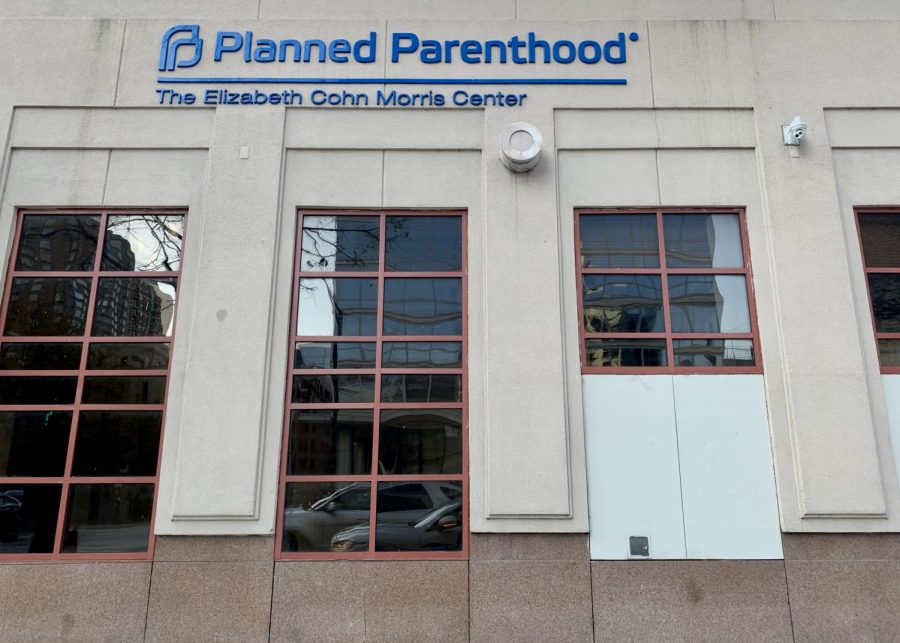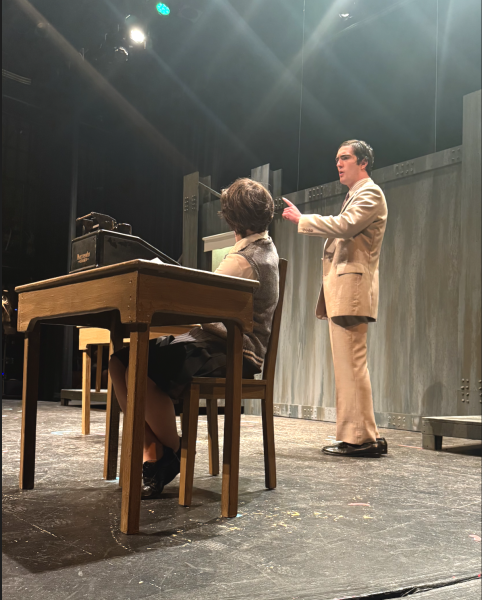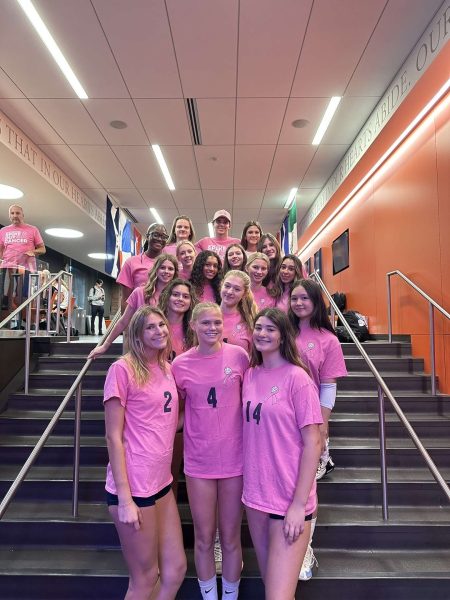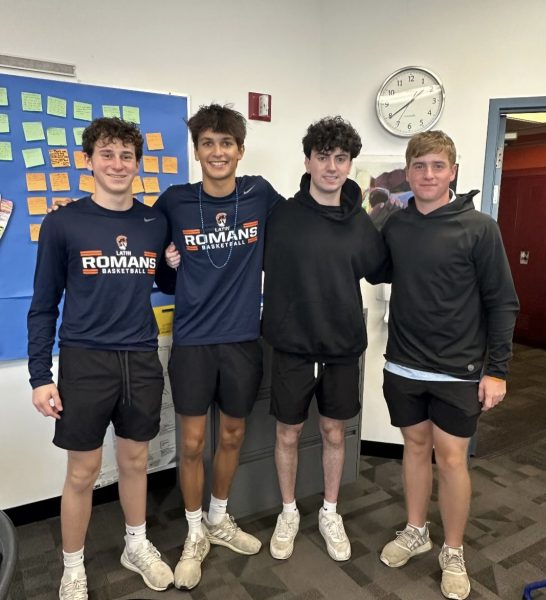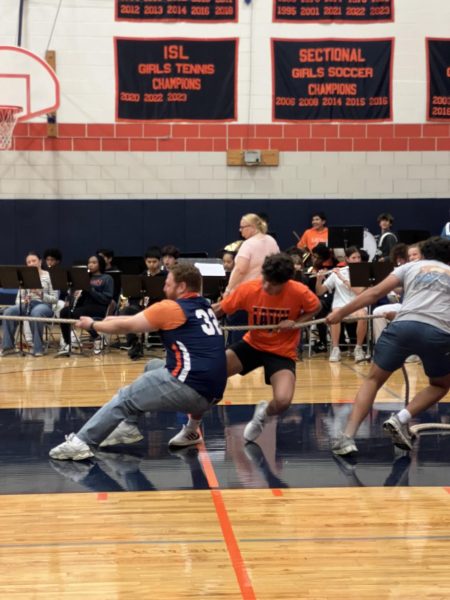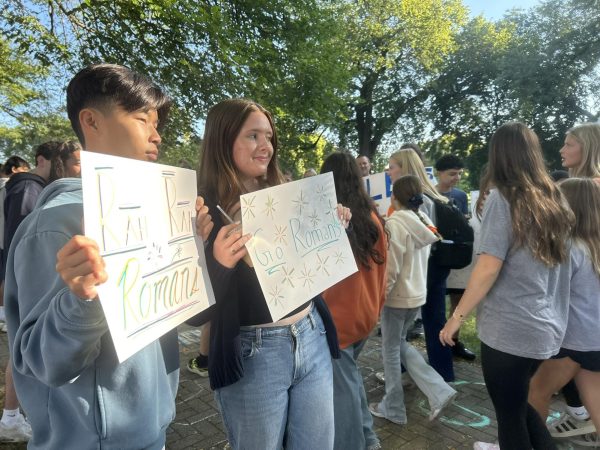Will Roe Go? Latin Looks Ahead
The facade of the Planned Parenthood at the corner of LaSalle and Division.
On December 1, the Supreme Court of the United States (SCOTUS) will hear arguments on the legality of yet another stringent abortion law. The case, Dobbs v. Jackson Women’s Health Organization, pits the Mississippi State Health Officer against the state’s sole abortion provider and serves as a direct challenge to nearly 50 years of constitutional precedent outlined by Roe v. Wade in 1973.
In early November, SCOTUS heard the federal government’s request to sue the state of Texas even though Senate Bill 8 can be enforced only by citizens. Mississippi’s abortion law contrasts Texas Senate Bill 8 sharply—it is plainly written and the state must enforce the law itself. Abortion in Mississippi could be outlawed after 15 weeks of pregnancy, the only exception being if the mother’s life is threatened by a medical condition or in the event of “severe fetal abnormality.”
Roe v. Wade guaranteed a woman’s right to abortion for the first 12 weeks of her pregnancy and also held that abortion could not be fully outlawed in the second trimester. SCOTUS later modified its approach to protecting abortion rights in the 1992 case Planned Parenthood v. Casey, which changed the framework to allowing restrictions once a fetus could survive on its own—known as the point of viability—which is typically around 24 weeks.
Upper School Social Studies and History teacher Lucie Wright explained that Roe could be overturned fully or partially. “It seems like there are three potential big outcomes. Either the court upholds Mississippi’s law and overturns Roe v. Wade, or the court upholds Roe v. Wade, but that seems unlikely,” she said. “The Supreme Court rarely just takes cases to affirm what the lower courts already decided.”
The third option, said Ms. L, would be one that “simultaneously upholds Dobbs and also does not categorically dismantle Roe.” Mississippi’s abortion law forbids abortions just after the start of the second trimester, so while Roe may be upheld, cases that expand abortion rights beyond Roe may be struck down.
Senior and Intersectional Feminist Alliance (IFA) Co-Head Alanna Madry tried to remain optimistic that abortion rights would remain intact. She said, “If the court rules in favor of Mississippi, abortion rights in the whole country could be at risk. But, nearly 900 state lawmakers from 45 states asked the court in a recent filing to rule against Mississippi and to uphold Roe v. Wade.”
Junior Ava Rosenow shared similar concerns about Texas’ abortion law. “I would hope that Senate Bill 8 will be struck down, given what is, to me, a clear attempt to constrict a woman’s right to choose and her bodily autonomy, disguised behind some clever lawmaking,” she said. “I am worried a precedent will be set for states like Texas and Mississippi allowing them to circumvent the Constitution’s protection of abortion.”
If Texas Senate Bill 8 is upheld, it gives the states free rein to cherry-pick rights of their choosing. Justices looked at the Texas law through the lens of a similar hypothetical law countering other rights in order to highlight their skepticism and the law’s flaws. Justice Brett Kavanaugh said, “There’s a loophole that’s been exploited here,” which could be applied to any other right.
For example, Illinois could restrict the purchase and carrying of firearms and let its citizens enforce it if the Texas law is allowed to stay on the books.
On the other hand, Mississippi’s case is framed around legal precedent. In the state’s brief, they argue that the Supreme Court’s “abortion precedents are egregiously wrong.” The state of Mississippi believes that Roe “has no basis in text or structure, and history and tradition,” and the Constitution does not have an all-encompassing right to privacy. To Mississippi, abortion’s constitutionality is nothing short of an “erroneous” overstep.
Sophomore and Conservative Student Alliance Vice-President Michael Cardoza said the Texas law is “convoluted and unnecessarily antagonistic in nature, but I do believe the post 15 week abortion ban for Mississippi will be upheld.” He added, “I hope that as a country we can be empathetic to those that do have abortions, but I also believe in life at conception, and I think it would be a shame to not let a child into this world.”
No matter the outcome of Texas and Mississippi’s abortion laws, there will be an aftereffect in terms of judicial precedent and political momentum, in addition to the obvious impact on the right to abortion.
Alanna also noted that abortion restrictions often harm other reproductive health practices. “There is a chance that Planned Parenthood, which already has a large stigma surrounding it, could be shut down,” she said, “making access to birth control, health screenings, STD testing all very difficult.” In addition to all they do for women, Planned Parenthood provides services for men, as well, including infertility screening, and other reproductive aids.
Additionally, since Dobbs challenges precedent set by Roe, other 14th Amendment cases could be at risk if the court rules in Mississippi’s favor. “Are there going to be other really significant, important rulings, like protecting gay marriage? That certainly remains to be seen,” said Ms. L.
The clause of the 14th Amendment that permits abortion today also has been the basis of protecting numerous privacy-related rights in the last 50 years. Those cases span anywhere from the right of unmarried people to use contraceptives (1972) to the right to intimacy for all (2003).
Per recent Gallup polls, 58 percent of Americans support upholding Roe v. Wade, while support for marriage equality stands at 70 percent. The majority of Americans want to keep the constitutional right to abortion, yet that right remains contentious on both the state and national level.
Ms. L. said, “The Republican Party has certainly indicated that much of the mobilization seems to be around social and cultural issues going into 2022.”
Alanna concurred, saying, “If Roe v. Wade is overturned, the political state of our country will become even more polarized.”
Many juniors and seniors at Latin—and across the nation—will have the opportunity to vote in midterms and could swing the outcome up and down the ballot. When elections are down to the wire, one vote can change someone’s life.
Ava shared that her choices for college and beyond may change with the possibility of a world without Roe, saying, “I do not have a desire to be in a state where I feel my rights are in danger.”

Ryan Rose (‘23) is a senior at Latin and is thrilled to serve as Media Editor. Starting his sophomore year, Ryan has loved writing a variety of local...














































